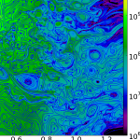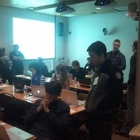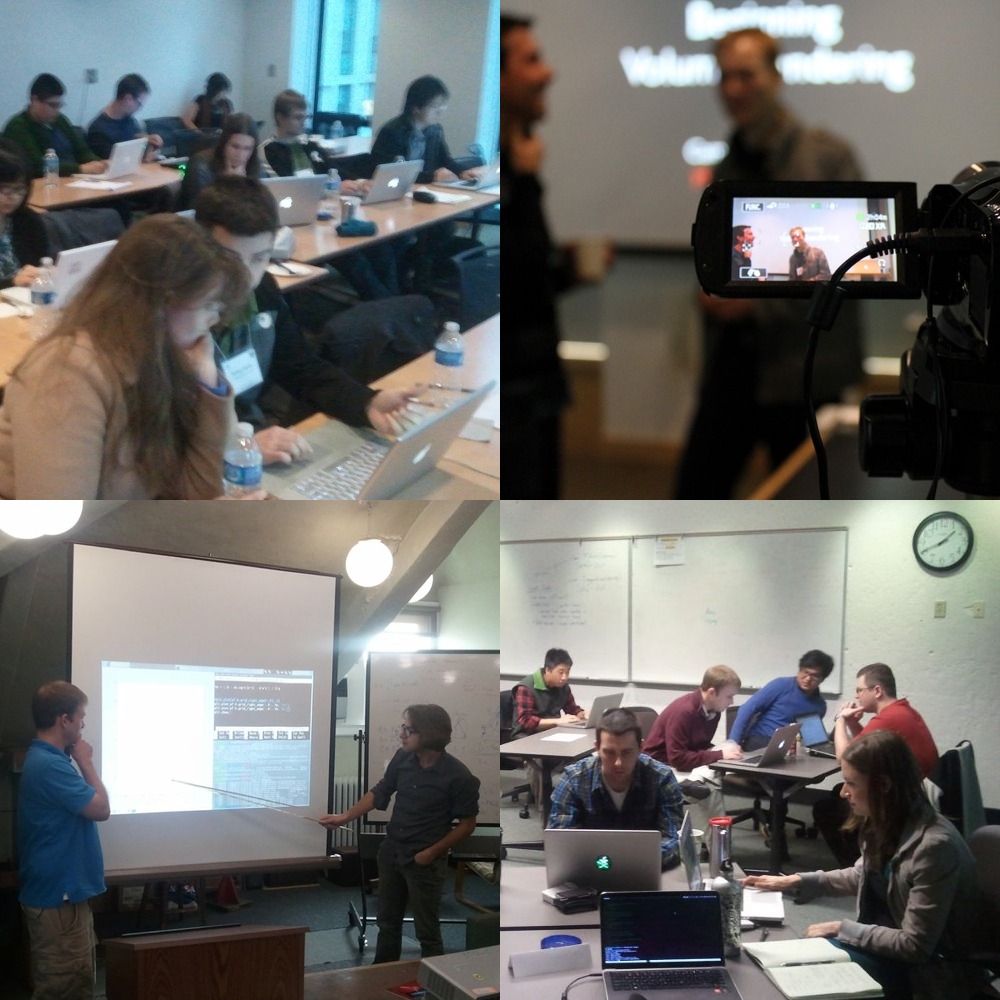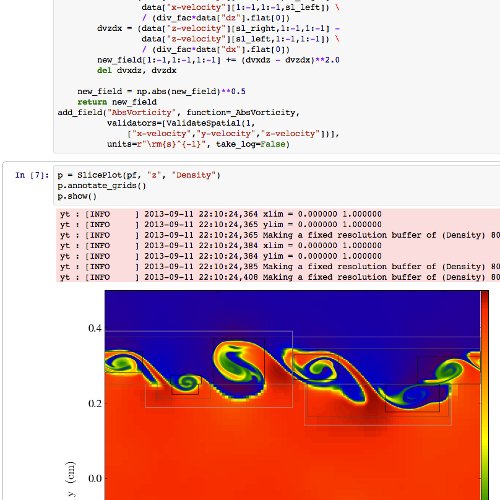
Data-Driven
yt is designed to provide a consistent, cross-code interface to analyzing and visualizing astrophysical simulation data from a physical perspective.

Community
yt is composed of a friendly community of users and developers. We want to make it easy to use and develop — we'd love it if you got involved!

Free Software
yt is developed completely in the open under a 3-clause BSD license. The developers are committed to open source practices and fidelity of scientific results.
Learn: getting started.
To get started with using yt to explore data, we provide resources including documentation, workshop material, and even a fully-executable bootcamp with sample data. If you have some data in a format yt doesn't recognize, we've got a section of the documentation for loading arbitrary data as well.
But if you just want to dive in and start using yt, we have a long list of recipes demonstrating how to do various tasks in yt. We even have sample datasets from all of our supported codes on which you can test these recipes.


Community: yt's best feature.
yt is a friendly community. We like hearing about fun things you have done with the code, and we're happy to help you out if you have a question or some trouble. You can join us in IRC, on the mailing lists, and if you'd like, you can check out how to develop, too.
If you've got some code to share, or scripts that you'd like to share, start up a repo on BitBucket or share them on our pastebin. For longer chunks of code or repositories used to make papers, we encourage you to check out the yt Hub, which is designed to share utilities, management scripts and datasets with other people. If you have any trouble, drop by the mailing list and we'll be happy to help out.
Participatory development.
If you're interested in getting started with helping out, the easiest way is to Fork us on BitBucket, check out the developer guide, and stop by the development mailing list. yt is released under the modified BSD License.
There are lots of fun projects to work on, along with some open issues, and we'd particularly like if you'd help out by adding a new code or if you'd like to help out by shoring up support in semi-supported code.

Get yt: all-in-one script.
yt is built on a stack of completely free and libre open source software, with no proprietary dependencies. It provides its own install script, to assist with constructing an isolated environment that can be upgraded and operated independently of the host operating system.
Usually getting yt is as simple as running the installation script. Simply download the stable, dev, or bleeding-edge version of the install script and run it. You can do this using wget or curl, or even just right click and choose Save As. Carefully read the instructions the script prints to your terminal since there might be special instructions for your operating system.
Stable
Development
Bleeding Edge
Once you've downloaded it, just run:
Get yt: from source.
If you are comfortable installing Python packages and a have a build environment set up, you can install yt via pip:
If you would like to install yt from the development or bleeding edge repositories, first clone the repository and then run the following command in the root directory:
To build yt, you will first need to install a number of Python and C libraries that yt uses for key functionality.
- HDF5
- NumPy
- h5py
- Matplotlib
- Cython
- libpng
- Freetype2
- IPython
- PyX
- Nose